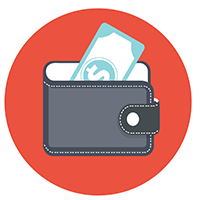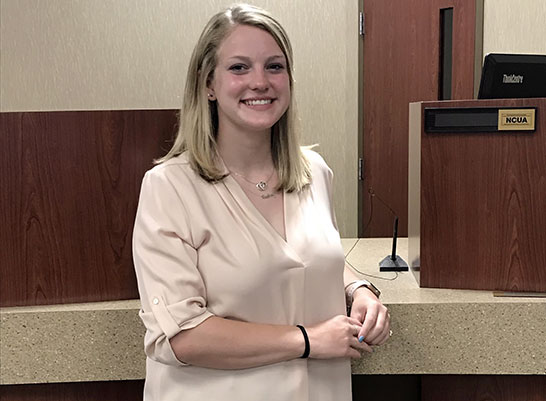You’re officially a high school graduate and will soon be off on your next adventure: college. While you may already have your textbooks, notebooks, and shower caddy ready to go, it’s also important to come mentally prepared with a plan for the new independence that lies ahead.
To get you started, we’ve interviewed successful college students and defined three areas essential to making the most of your college experience. Learn from these tips to hit the ground running on your first day.

Time Management
Time works differently in college than it does in high school. According to a survey by UCLA, little more than half of college students said that they studied for six or more hours a week as high school seniors. As a first-year college student, you may not realize that while you’ll spend much less time in a classroom than you did in high school, you must dedicate much greater amounts of time outside of class to completing lengthy assignments and studying.
However, college is not only about coursework. More time available outside of class also means college students have time to dedicate to a job, clubs or fun activities which can be essential components of an enjoyable and successful college experience. To be able to do all of these activities during college, scheduling is key.

“I have to plan my schedule up to a month in advance.”
–Kelsey, senior at SUNY Fredonia
When planning, it’s important to prioritize and consider both long-term and short-term goals. For example, you can create both daily to-do lists and lists for what you’d like to accomplish each week and/or month. Check your short-term list daily and revisit the long-term list once a week to make sure you’re on track to meet your goals.

Enrich Your College Experience
Your college years can be a wonderful time to have many different experiences that are fun, help you prepare for the future, or maybe both!
One of the ways to do this is by joining a club on campus.

“Clubs can be useful to put on a resume, but are also a good way to meet new people and have some fun. Some of the closest friends I have made at college so far are ones that I have met at club meetings.”
–Trevor, junior at St. John Fisher College
To help students learn about clubs on campus, many colleges have an activities fair at the beginning of the year. These fun events are a great way to see what activities your school has to offer.
Also, consider doing an internship or other form of experiential learning. As described in the Washington Post:
Jeffrey J. Selingo, a professor and author of books on higher education notes that, “Experiential learning stimulates critical thinking, gives students a better understanding of what they learned from a lecture, allows them to work in ambiguous situations and provides a sense of accomplishment. It’s through these outside-the-classroom experiences that students often learn about themselves, about what they can do and what they can’t, and, most of all, what really drives their passions.”
Although most college students don’t get an internship until sophomore year or later, start preparing yourself now by looking into companies you’re interested in and building up your resume.
Lastly, don’t overlook attending some of the fun events your campus hosts. Many colleges host comedy nights, trivia nights, or arts and crafts events. Participating in these events can give you time to unwind from your coursework and make connections with new people.

Money Management
Just as time can be a precious resource in college, and should be managed wisely, the same is true for money.
The first things to consider are your sources of income. Many students earn money during college with an internship or part-time job, some of which may conveniently be located on campus. Also consider your earnings from jobs during school breaks and any financial assistance from your parents/guardians.
As you consider how to spend this income, key categories to budget for are tuition, housing, food, books, utilities, transportation, groceries, clothing, and entertainment.
When creating your budget, also be aware of the amount you’ve taken out in student loans. According to a Brookings Institution report, about half of all first-year students attending college in the U.S. drastically underestimate their amount of debt. It’s important to take responsibility for this debt by keeping spending in check and saving money to pay it off.

“One tip that has helped me be able to save money easier has been saving 10% of what I earn and putting it away. This way I am always putting some money aside in case there is something that I need during the school year that is an unexpected expense.”
–Audrey, sophomore at MCC
There are numerous other ways to save the money you earn as well. For example, did you know that according to Affordable Colleges Online, some college students spend about $1,100 on coffee each year? If you need the caffeine, consider purchasing a coffee machine rather than paying café prices. Affordable Colleges Online also suggests buying used textbooks, making use of student discounts, and buying store brand and clearance items, among other cost-effective options.
To make even better use of your money, be sure to put what you’ve saved in a separate account so you can get started on your savings journey.
For more information on starting college, check out this article about preparing for college from a parent’s perspective.
